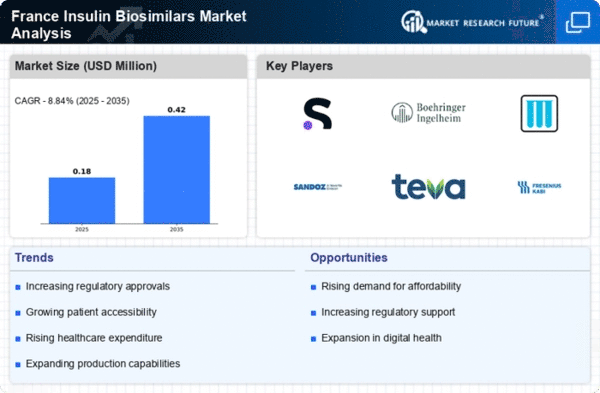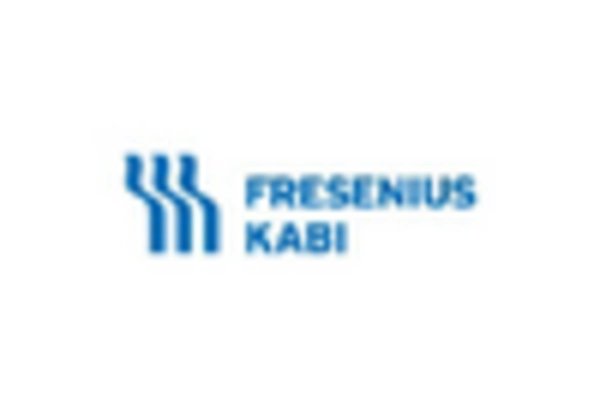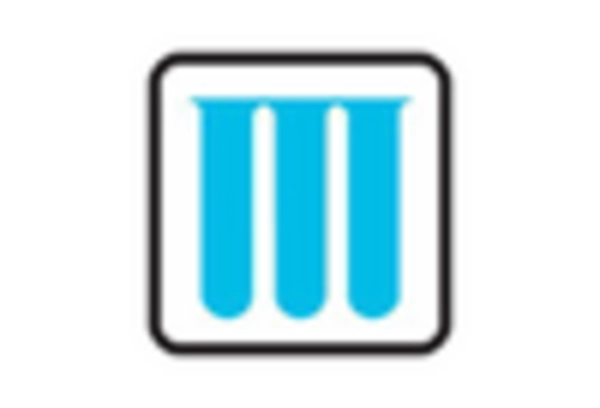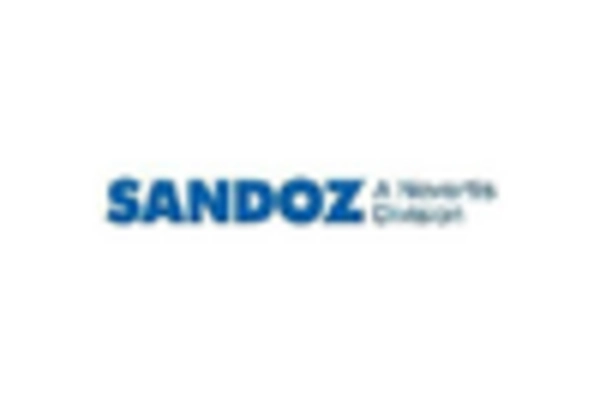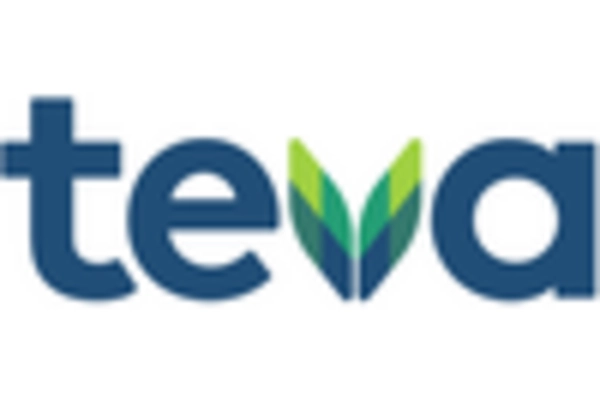Cost-Effectiveness of Biosimilars
The cost-effectiveness of biosimilars is a pivotal factor driving the insulin biosimilars market in France. With the rising costs of healthcare, patients and providers are increasingly seeking more affordable treatment options. Biosimilars typically offer a lower price point compared to their reference biologics, which can lead to substantial savings for both patients and the healthcare system. In France, the average price of biosimilar insulin can be up to 30% lower than that of branded insulins, making them an attractive option for cost-conscious consumers. This economic advantage is likely to enhance the market penetration of biosimilars, potentially leading to a market growth of around 14% as more patients opt for these alternatives in their diabetes management.
Increasing Prevalence of Diabetes
The rising incidence of diabetes in France is a crucial driver for the insulin biosimilars market. As of recent data, approximately 3.5 million individuals in France are diagnosed with diabetes, a figure that is projected to increase. This growing patient population necessitates affordable treatment options, thereby enhancing the demand for biosimilars. The insulin biosimilars market is expected to benefit from this trend, as these products offer a more economical solution compared to traditional insulin therapies. With the French healthcare system focusing on reducing expenditures, the adoption of biosimilars is likely to accelerate, potentially leading to a market growth rate of around 15% annually. This trend indicates a significant opportunity for stakeholders in the insulin biosimilars market to cater to the increasing needs of diabetic patients.
Advancements in Manufacturing Processes
Advancements in manufacturing processes are contributing to the growth of the insulin biosimilars market. Innovations in bioprocessing technologies have improved the efficiency and scalability of biosimilar production, resulting in higher quality products at reduced costs. These advancements not only enhance the reliability of biosimilars but also facilitate faster market entry, which is crucial in meeting the increasing demand for insulin therapies. In France, the implementation of state-of-the-art manufacturing techniques is expected to drive down production costs by approximately 20%, thereby making biosimilars more accessible to patients. This trend indicates a promising future for the insulin biosimilars market, as manufacturers leverage these technological improvements to expand their product offerings and capture a larger share of the market.
Rising Awareness Among Healthcare Professionals
There is a notable increase in awareness among healthcare professionals regarding the benefits of biosimilars, which serves as a significant driver for the insulin biosimilars market. Educational programs and workshops have been organized to inform practitioners about the efficacy and safety of biosimilars compared to their reference products. This heightened awareness is likely to influence prescribing behaviors, as healthcare providers become more confident in recommending biosimilars to their patients. As a result, the insulin biosimilars market may experience a surge in adoption rates, potentially increasing by 12% over the next few years. This trend suggests that as healthcare professionals embrace biosimilars, patient acceptance is also expected to rise, further bolstering market growth.
Government Initiatives for Healthcare Affordability
The French government has implemented various initiatives aimed at improving healthcare affordability, which directly impacts the insulin biosimilars market. Policies promoting the use of biosimilars are designed to reduce healthcare costs while ensuring patient access to essential medications. For instance, the government has introduced reimbursement schemes that favor biosimilars over branded insulins, thereby encouraging healthcare providers to prescribe these alternatives. This strategic focus on cost containment is expected to drive the insulin biosimilars market, as it aligns with the broader objectives of the French healthcare system. The market could witness a growth trajectory of approximately 10% as more healthcare professionals and patients opt for these economically viable options, reflecting a shift towards sustainable healthcare practices.


